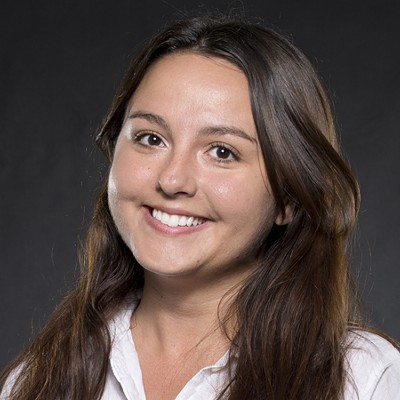Audrey Winkelsas is a junior at the University of Miami. She was just 7 months old when she was diagnosed with spinal muscular atrophy, a form of muscular dystrophy. She studies biochemistry and helps conduct research for the Miami Project to Cure Paralysis. She hopes one day to find a cure for her condition. Until then, Winkelsas' condition requires 24-hour care.
Originally from Apopka, a suburb outside of Orlando, Winkelsas received 24-hour attendant care for the past two and a half years while she studied at UM. However, as of her 21st birthday on October 16, 2013, Winkelsas' Medicaid care was taken from her since she is no longer considered a child or young adult. After appealing, Winkelsas was granted only three one-hour visits per day (none of which can be consecutive). She wishes her condition required only such minimal aid, but since turning 21, Winkelsas' mother, Keely Winkelsas, has had to leave her work behind to provide the care her daughter desperately needs to receive an education.
See also: Vice Mayor Barbara Sharief Settles in Medicaid Overbilling Case; Faces Second Case
Winkelsas explains she is shy and didn't want to draw too much attention to herself but decided to start a petition with Change.org last Tuesday to bring attention to her problem. In just 24 hours, the petition received 5,000 signatures.
Winkelsas and her family were overjoyed when she was awarded the George Jenkins Scholarship to study at UM. She understood everyone could not uproot their lives 250 miles to take care of her in Miami. After all, her parents ran a small printing business where they've been understaffed since the recession.
But Winkelsas attended public school her entire life and had never received attendant care; her friends and family would help care for her. Her senior year of high school, Winkelsas requested a health-care attendant through Medicaid for when she started UM in the fall. Originally she was granted only two, three-hour visits per day. However, through a round of appeals, she was provided 24-hour care. And for the past two and a half years, four attendants who worked 12-hour shifts at a time on different days of the week looked after Winkelsas as she completed her studies.
But last October 16, Winkelsas turned 21. She was studying abroad in London at the time, and since she was out of the country, she could not receive health-care attendant services. Instead, her mom traveled with her, understanding it was a once-in-a-lifetime opportunity.
When Winkelsas returned to campus at the start of semester, she was abruptly informed she would no longer receive the 24-hour care because she had turned 21. "Whether you're 20 years and so many days old or 21, your age in most cases doesn't affect your condition," Winkelsas explains. "I would be so grateful if suddenly I didn't have SMA, but it doesn't work that way."
Winkelsas was aware of the turning-21 clause in Florida's Medicaid provider handbook, but she had other friends who were a few years older who had successfully appealed it when they had turned 21. Winkelsas was confident that anyone who met with her would understand her need for 24-hour care. But halfway through the semester, she has had no luck in reversing Medicaid's ruling.
Every day, Winkelsas says her mother makes phone calls trying to find her daughter 24-hour care. They have taken tips from friends and have even called their local representative, Bryan Nelson, who forwarded the message to Marco Rubio's office and Gov. Rick Scott's. Everything has been unsuccessful so far.
"We thought if more voices were supporting us, it might get someone's attention," Winkelsas says.
Follow @NewTimesBroward











